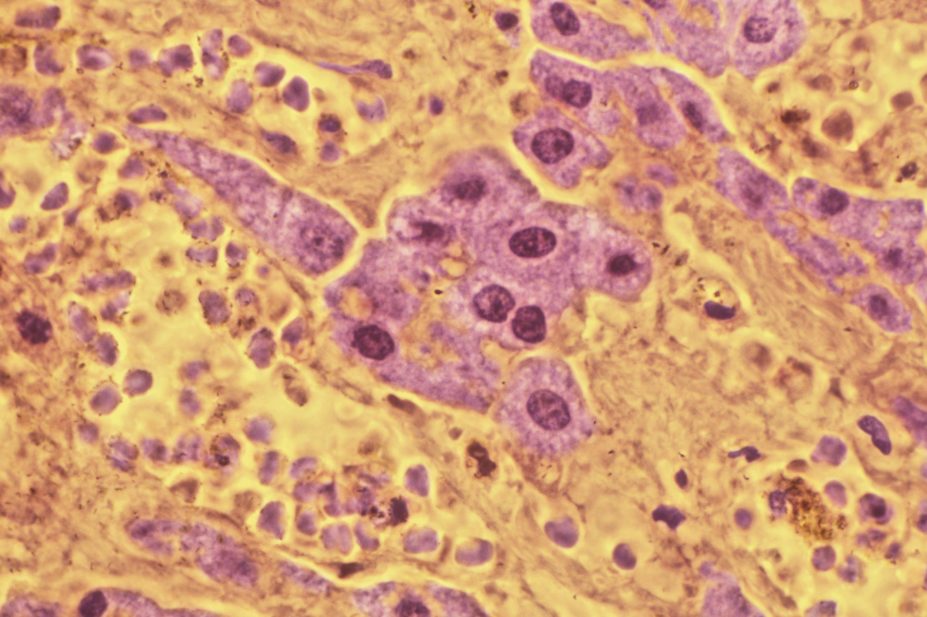
Biology Pics / Science Photo Library
Rearrangements of the anaplastic lymphoma kinase (ALK) gene are present in 3–5% of non–small-cell lung cancers (NSCLCs). Data from an ongoing phase III study indicate that patients with ALK-positive NSCLCs fare better when treated with the ALK inhibitor crizotinib than with standard chemotherapy.
PROFILE 1014 is an open-label study in 343 patients with treatment-naïve, advanced ALK-positive nonsquamous NSCLC given either oral crizotinib or intravenous pemetrexed/platinum chemotherapy.
Interim results published in The
New England Journal of Medicine (online, 4 December 2014)[1]
reveal that crizotinib was associated with significantly longer progression-free survival, significantly higher response rates, a greater reduction in lung cancer symptoms and greater improvement in quality of life. The most common adverse events with crizotinib were vision disorders, diarrhoea, nausea and oedema.


